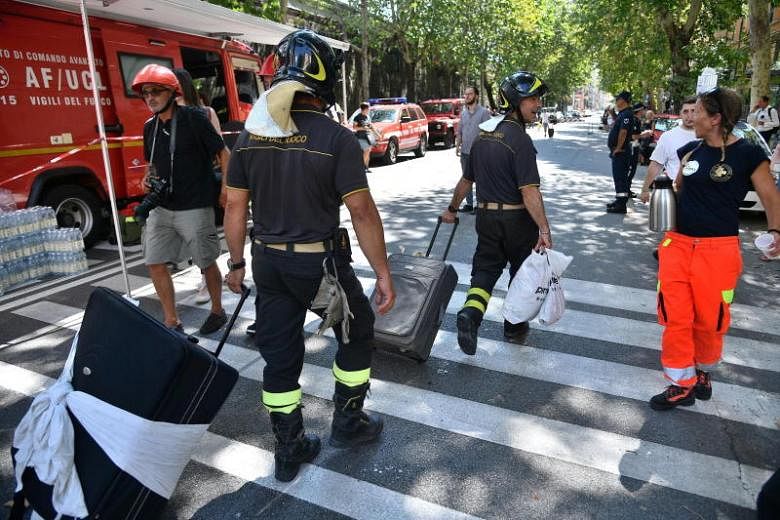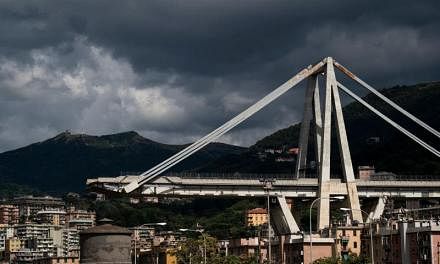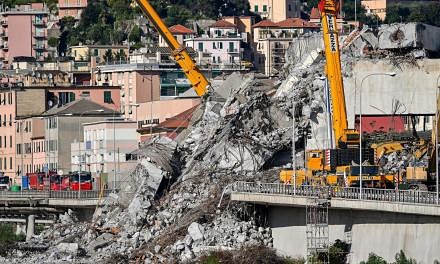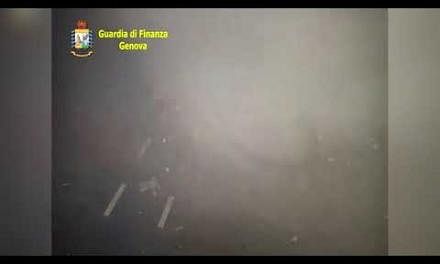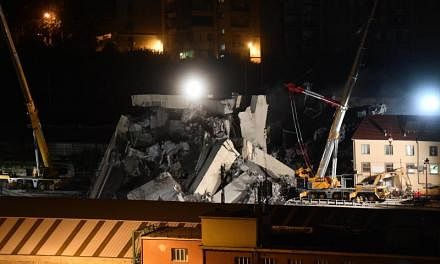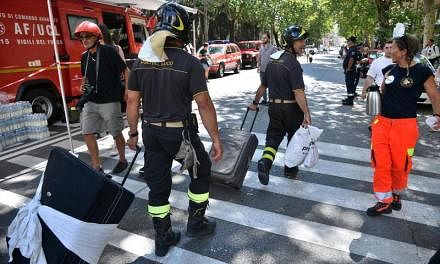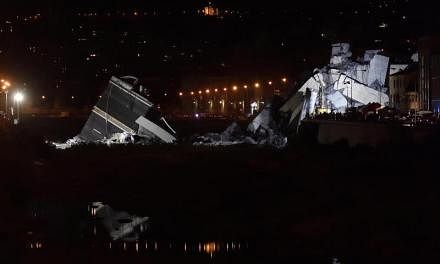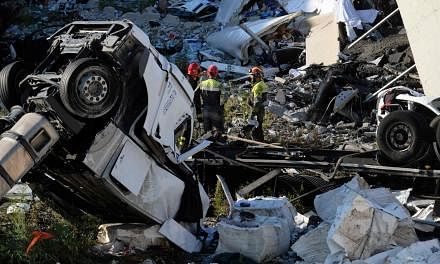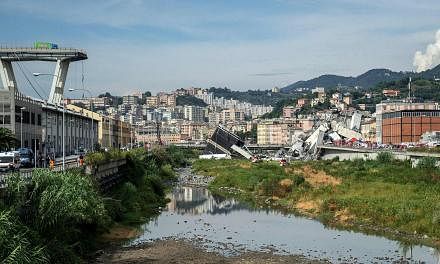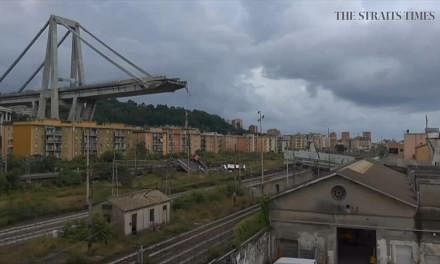GENOA, ITALY (AFP) - Under a dimly-lit porch, a handful of traumatised and newly homeless survivors sit on metal benches, near the rubble of the collapsed Morandi bridge in Genoa.
"I don't want to talk about it " says one man with heavy rings around his eyes.
He is not alone.
News cameras and microphones are thrust towards the traumatised souls milling around a municipal sports centre where psychologists and local officials are trying to deal with their sudden change of fortune.
After Tuesday's (Aug 14) tragedy, a hundred people spent the first night at the sports centre, most of them evacuated from homes made unsafe by the collapse or drivers caught up as 35 cars and several trucks plunged 45 metres onto railway tracks below along with huge chunks of concrete.
Very few of them want to recount what they saw and endured as the bridge collapse left dozens dead.
Majid Alaoui, a 35-year-old dock worker in the northern Italy port city, manages a few words.
"My four-year-old daughter and my wife are inside. My daughter isn't doing well, she can't stop crying," he says.
Journalists are not allowed inside the sports centre where these evacuees have been sent.
"One person was in their car when the bridge collapsed," said Maria Tini, a local official of the populist Five Star Movement, which is part of Italy's coalition government.
"She managed to get out of her car and fled on foot. She saw the bridge crumble right in front of her," Tini added.
Rooms offered
More than 600 local residents were evacuated, some being sent to hotel rooms, other housed with friends and relatives or given vacant apartments.
"This morning, many people turned up on their own initiative, offering to put up people who have been evacuated," said Michele Colnaghi, another local Five Star councillor.
One hotel in the area has offered rooms free of charge, said deputy mayor Paola Bordilli.
On Thursday, two days after the bridge collapse, men and women were still turning up to register for emergency accommodation.
The Alaoui family were living in an apartment under the massive Morandi bridge, which buckled without warning.
"We were sent to a hotel and told that we could return home in a week, then someone told us that we'd have to stay there until November," said Majid Alaoui.
He is now living in a single room with his wife and daughter with only a few belongings and without the means to cook a meal.
On Wednesday, local and national officials made the situation quite clear: the portions of the bridge still standing would be demolished and that means the buildings below will have to go too.
Italy's Interior Minister Matteo Salvini has committed to rehouse everyone by the end of the year, but that seems a distant horizon right now.
"I have to go back to work on Tuesday but I won't be doing so. I can't leave my wife and daughter in this state," Alaoui said.
"But there are people worse off than us," a man in his thirties from Morocco chimed in.
Among their new neighbours in the hotel are the family of a man who fell from the collapsing bridge and died.
"They have come to Genoa for the funeral on Saturday," he adds.
